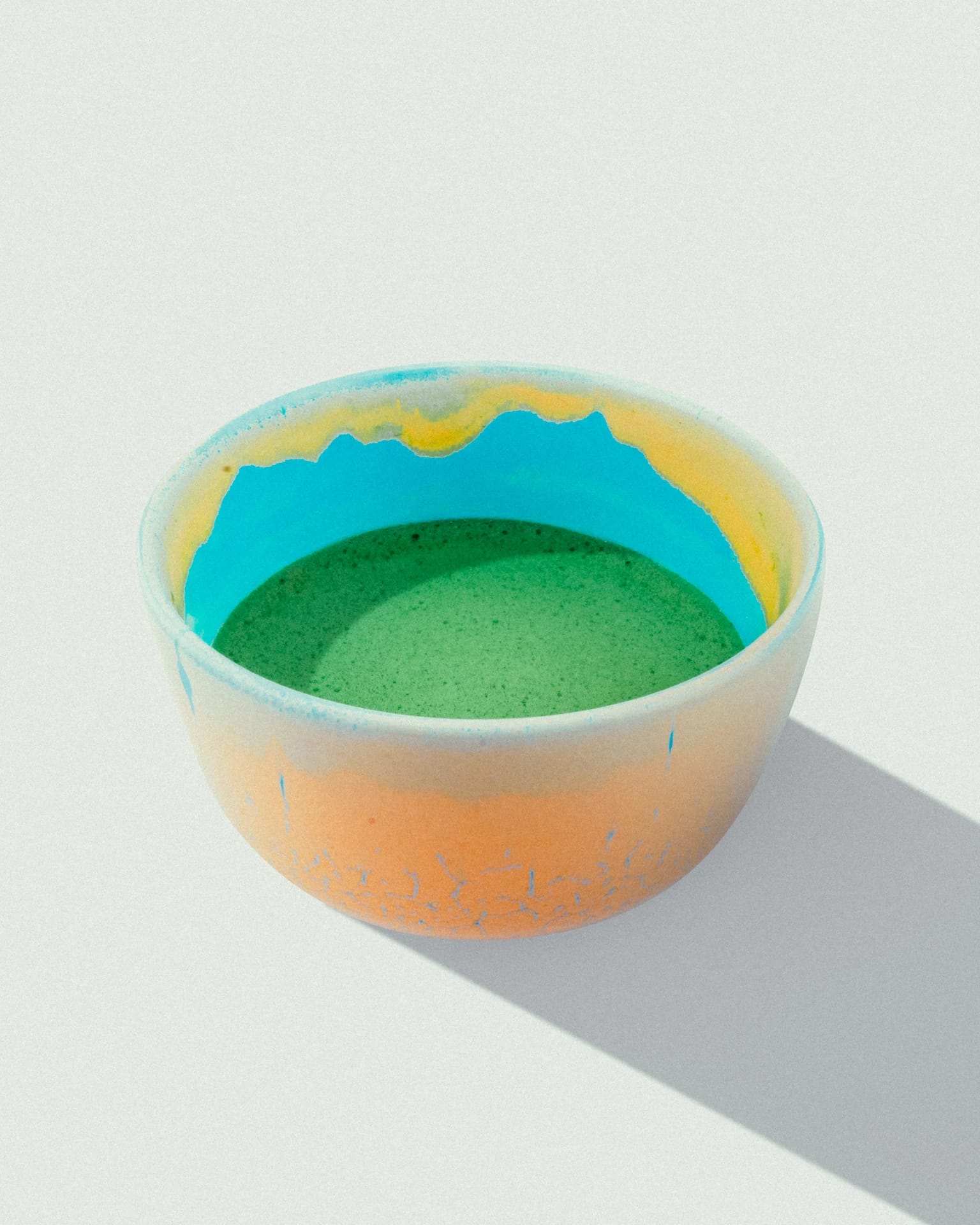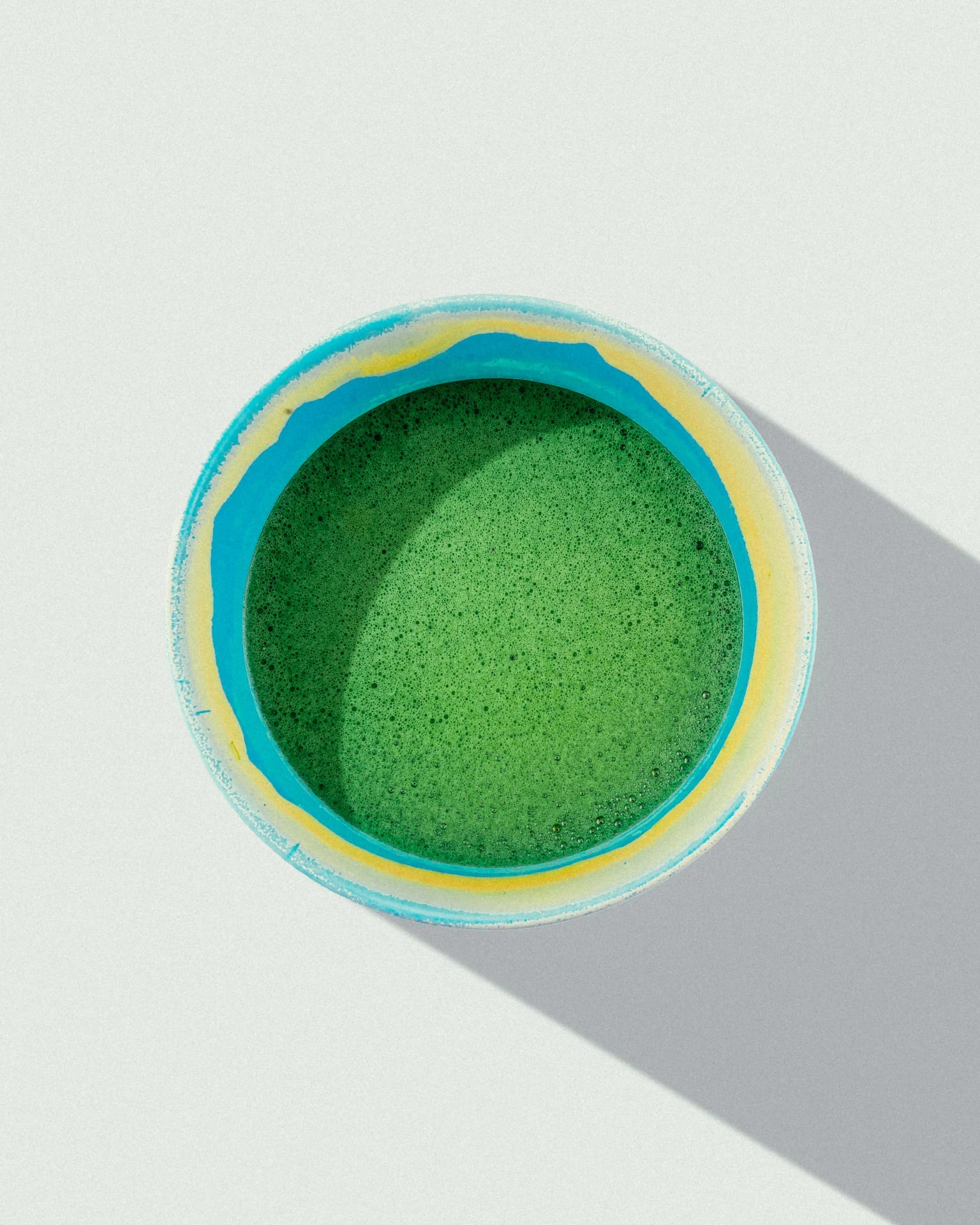

How to Understand the Relationship Between Stone Mills and Modern Mills
(Integrated & Updated Version)**
In today’s matcha production, there are two main milling methods:
1. Traditional stone mills, and
2. Modern machine mills such as bead mills, ball mills, and jet mills.
Stone milling is a long-standing method deeply connected to Japanese tea ceremony culture, and even today many brands use it as a symbol of high-end matcha.
Meanwhile, modern low-temperature machine mills have evolved significantly.
Under the right conditions, many producers report that these machines can achieve powder fineness comparable to stone-milled matcha.
However, it is not possible to generalize that one method is “inherently superior.”
Actual quality depends greatly on factors such as:
The quality of the tencha used (first flush, shading duration, region)
Milling conditions (temperature control, milling speed, particle-size management)
Rather than thinking in simple terms like
“stone mill = authentic / machine = inferior,”
each method carries different roles and different types of value.
Understanding this balance is becoming essential when evaluating matcha today.
Why Machine Mills Are Essential for Today’s Global and Wholesale Demand
—The Idea of Role Division Between Stone Mills and Machine Mills—**
Another important reality is the scale of global demand.
In the U.S., Europe, and the Middle East,
demand for ceremonial-grade matcha continues to rise, and businesses now require
stable monthly supply ranging from hundreds of kilograms to several tons.
However, stone milling faces unavoidable limitations:
Only about 40 g per hour per mill
Heat buildup makes long continuous operation difficult
Requires constant artisan adjustments, making it inefficient
For these reasons, stone milling has high cultural value but is not suited for mass production.
By contrast, modern machine mills such as bead mills offer:
Low-temperature milling that preserves aroma and color
Highly uniform particle size with fewer clumps
Stable quality even in large production runs
Continuous operation and productivity high enough for international wholesale demand
Because of these strengths, modern machine mills—especially bead-type systems—are effectively the only practical technology capable of supporting today’s global and wholesale matcha demand.
“Ceremonial = Stone-Milled” Is a Misconception
But the Pricing Structure (“Expensive Stone Mills, Affordable Machine Mills”) Will Continue**
It is important to recognize that
machine mills such as bead mills can now achieve quality comparable to stone-milled matcha in many cases.
Even so, the pricing structure will likely remain clearly divided:
Stone mills → high-priced (cultural value, rarity, craftsmanship)
Machine mills → more affordable (efficiency, stable supply)
This difference does not reflect a quality hierarchy.
It is driven by structural differences in production volume, labor, and scalability.
Stone mills will continue to exist like cultural artifacts,
while modern machine mills will serve as the practical technology supporting global supply.
This dual-structure balance is likely to become the standard form of the matcha industry in the future.
Final Summary
Stone mills and modern machine mills differ in their roles, not in absolute superiority
Ceremonial-grade quality is not determined by the milling method alone
Machine mills (such as bead mills) are indispensable for meeting global demand
Stone mills will remain in the high-end category due to cultural value and rarity
Machine mills will continue as the modern standard for stable, high-quality production
Above all, what truly matters is not which milling method is used but:
What kind of tencha is used,
and what philosophy guides the process of crafting the matcha.
Communicating this perspective strengthens the transparency, expertise,
and trustworthiness of your brand.
For wholesale and professional use
We offer this and other high-grade matcha selections to cafes, retailers, and culinary professionals through our dedicated wholesale platform.
Access to the site requires a password.
Please contact us via our wholesale inquiry form to receive access.